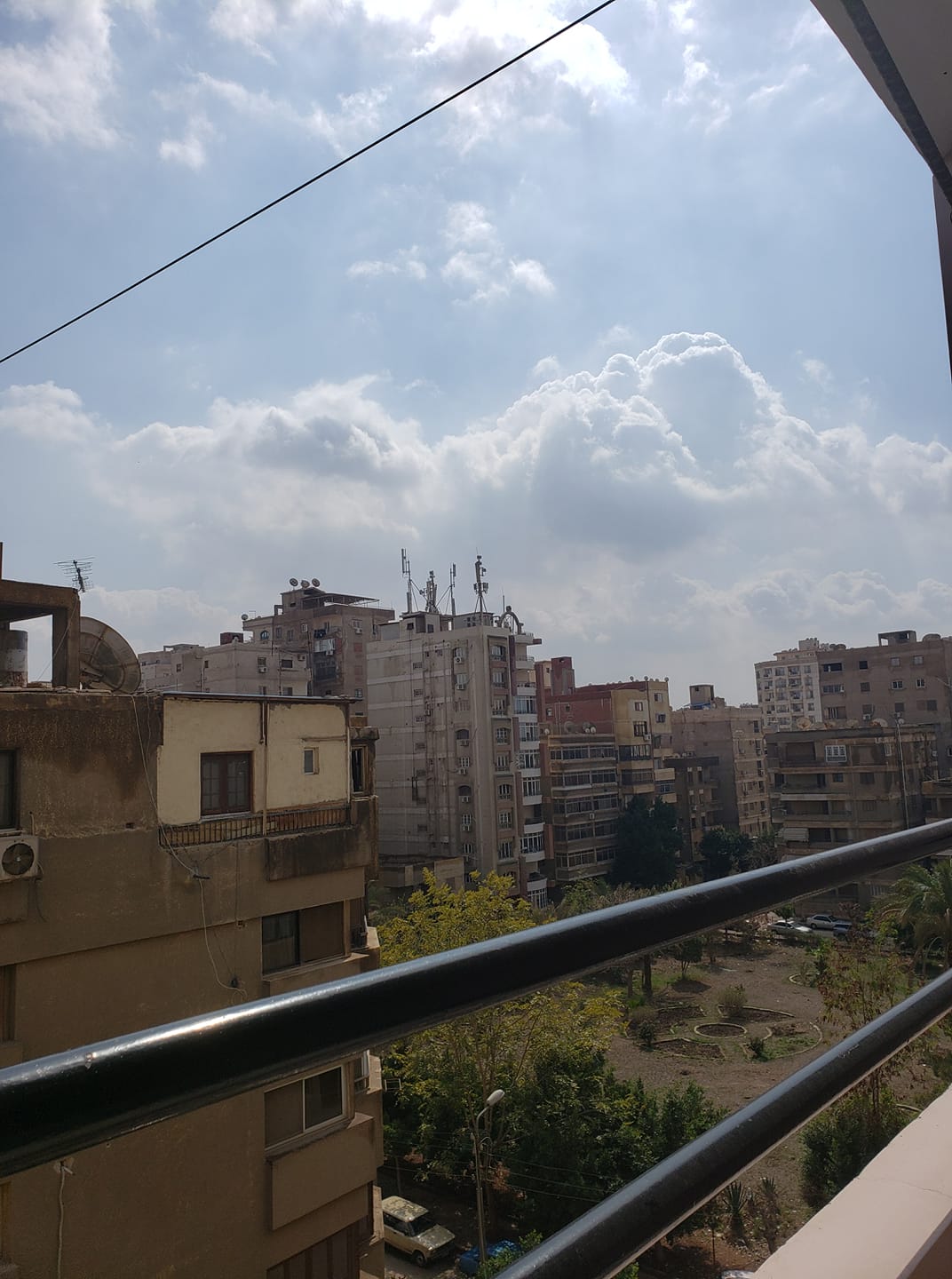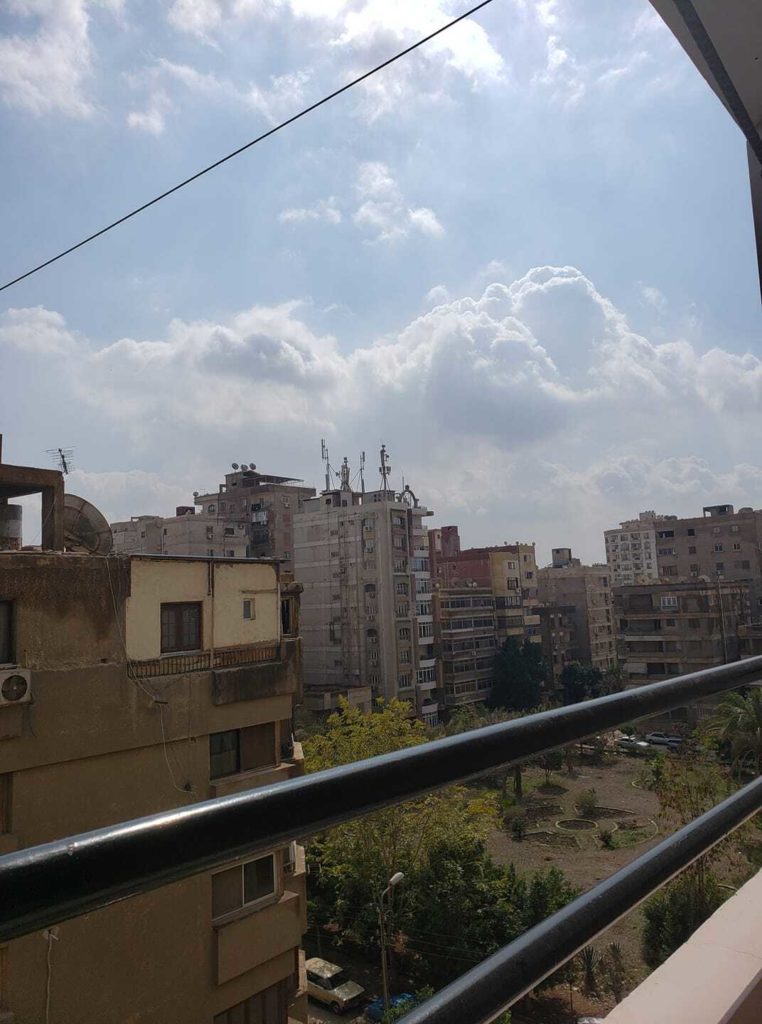Witnessing Faith in Action: COVID Response in Egypt
“Iron sharpens iron, and one person sharpens the wits of another.” (Proverbs 27:17, NRSV)
I am fascinated with wisdom literature. I spend time reading through my favored texts – Buddhist Scripture, Idries Shah’s Rumi-centric Hundred Tales of Wisdom, and Benedicta Ward’s translation of the Sayings of the Desert Fathers. Such works have exposed me to a wide variety of perspectives on human and spiritual fulfillment, many of which are joined together by a shared sinew of belief: collectively, we humans are preoccupied with what’s directly in front of us – thus, we often prevent ourselves from being able to see the “big picture”.
Whenever I feel as if I’m missing “something” these days, or if I’m seeking some sort of spiritual course correction, the Books of Psalms and Proverbs have become my “go-to” sources of inspiration. Flipping through thin sheafs of Bible paper, I always manage to find a familiar anecdote, or a comforting quote. In doing so, I am able to reinforce my understanding of many passages (thanks, New Interpreter’s Study Bible!). But what if I’m looking for something transformative, or challenging? For starters, I could glimpse out my apartment window and try to apply those passages to the “big picture” outside.
 In 2020, the world is frayed: COVID-19 influences every aspect of our public, private, and professional lives. Groups of people who have never faced structural challenges in their lives now find themselves constricted for the first time, leading to the intensification of age-old conflicts in new contexts – as some might say, “old wine in new bottles”. Those who have found themselves jumping over hurdles to survive – finding childcare so that they can get to work and make ends meet for the rent, hopefully with enough left over to eat – are beginning to see that those hurdles are getting taller and taller each day. Many regions affected by COVID-19 have also begun to lack essential resources such as medical supplies, hospital bed availability, and staple foods; misinformation runs rampant, and a lack of follow-through reading safety precautions – due to belligerence or disbelief, a lack of resources or a lack of information – threatens local stability and livelihoods, especially for those people who already face distinct disadvantages in society.
In 2020, the world is frayed: COVID-19 influences every aspect of our public, private, and professional lives. Groups of people who have never faced structural challenges in their lives now find themselves constricted for the first time, leading to the intensification of age-old conflicts in new contexts – as some might say, “old wine in new bottles”. Those who have found themselves jumping over hurdles to survive – finding childcare so that they can get to work and make ends meet for the rent, hopefully with enough left over to eat – are beginning to see that those hurdles are getting taller and taller each day. Many regions affected by COVID-19 have also begun to lack essential resources such as medical supplies, hospital bed availability, and staple foods; misinformation runs rampant, and a lack of follow-through reading safety precautions – due to belligerence or disbelief, a lack of resources or a lack of information – threatens local stability and livelihoods, especially for those people who already face distinct disadvantages in society.
According to the U.S. Embassy in Cairo, the end of May will see approximately 20,000 confirmed cases of COVID-19 in Egypt and over 800 registered COVID-19-related deaths – the highest numbers on the African continent. The government has put into effect a number of evening curfews, and are currently restricting movement (both local and from governorate-to-governorate) from evening until morning; to prevent person-to-person spread of the virus, venues such as restaurants, commercial shops, and public transportation have been shuttered. The Egyptian government has utilized the military to assist in cleaning and disinfecting public areas, and fines are issued to those citizens who are caught breaking the pandemic curfew by police. By June 1st, face masks will be mandatory in public spaces.
These restrictions have been in place during Ramadan, a holy season for the country’s approximately ninety-million Muslims. The long-held traditions of street-side charity and nightly family parties have been largely usurped by gatherings around the nightly television for curfew information and updates on the number of afflicted; seasonal greetings between neighbors, meanwhile, are shouted across balconies.
The most vulnerable Egyptians – those with the least, and the most to lose – are most affected by COVID-19. According to some statistics, the percentage of the Egyptian population working within the “informal sector” of the economy hovers at around 50%. Due to difficulties related to COVID-19, housekeepers and small business owners find themselves experiencing reduced business; street vendors – many of whom sell fresh juice or coffee on neighborhood corners during Ramadan evenings – are unable to do so due to curfew and safety restrictions. Local drivers, well-known for their expert ability to weave a microbus through the most hectic Cairo traffic jam, have seen their passengers (and income) dissipate. Government efforts have been made to supply irregular and informal workers with cash assistance, but many lack access to the internet services and web portals required to apply for such aid.
In response to the need, we have seen organizations step into the field to provide assistance and sustenance to their brother or sister – a form of “living wisdom”, perhaps, that requires no literature or theological training. Within the Egyptian context, I am most impressed with the Coptic Evangelical Organization for Social Services (CEOSS): a partner of Global Ministries, and the agency with whom I am serving. Due to my proximity to the organization, I have seen the width and bread of the its capabilities – and I am humbled.
Emphasizing social cooperation and the necessity of a united front against the virus, CEOSS has put into effect a number of new pandemic-related programs. In response to current events in Egypt, the agency has combated misinformation related to COVID-19 on their Facebook page; carried out public information campaigns, lead sterilization initiatives in both rural and urban environments. Cleaning equipment, medical supplies, and food have found their way to local families as a result of CEOSS’s outreach efforts. Additionally, the agency’s other work continues in modified fashion: workshops promoting the importance of inter-group dialogue have been held via Zoom, and essential supplies are still being distributed to the thousands of families affected by flooding earlier this year – provided to all affected Egyptians – Muslim and Christian, female and male, young and old.
In the few months I’ve worked with CEOSS, I have been awe-struck by the agency’s dedication to its work. Despite restrictions on basic life, CEOSS has continued to provide services and reinforce them – its office staff working to support those staff in the field, both groups carrying the heavy weight of life and work during a pandemic. CEOSS has proven itself to be able to do the following:
1. a) See the “big picture” of society – including the structurally-disadvantaged and poverty-stricken people on its edges, hearkening back to the community initiatives of founder Rev. Dr. Samuel Habib.
2. b) Effectively apply compassionate Christian ethics in assisting their fellow Egyptians, doing so in a manner sensitive and responsive to the Egyptian cultural and religious context.
3. c) Perform the aforementioned goals while keeping in mind the health and safety of their staff in a time of ongoing global pandemic and economic uncertainty.
Having worked in non-profits in the United States for a decade, I can safely say that we Americans have much to learn from our Egyptian cousins. In the face of the unknown, these Egyptians have stood up to support one another – to sharpen one another, and hone their society into one with the wit to respond to such a pandemic. There is still a long road to travel here, and a great potential for things to get worse before they get better, but I am nonetheless honored to contribute to the work of CEOSS.
I’d like to think that their applied “wisdom” – their iron – has begun to sharpen my own. One day, maybe I’ll even have wits. Until then, I am honored to assist in their good works.
Sean Amato serves with the Coptic Evangelical Organization for Social Services (CEOSS), Egypt. His appointment is made possible by your gifts to Disciples Mission Fund, Our Church’s Wider Mission, and your special gifts.

